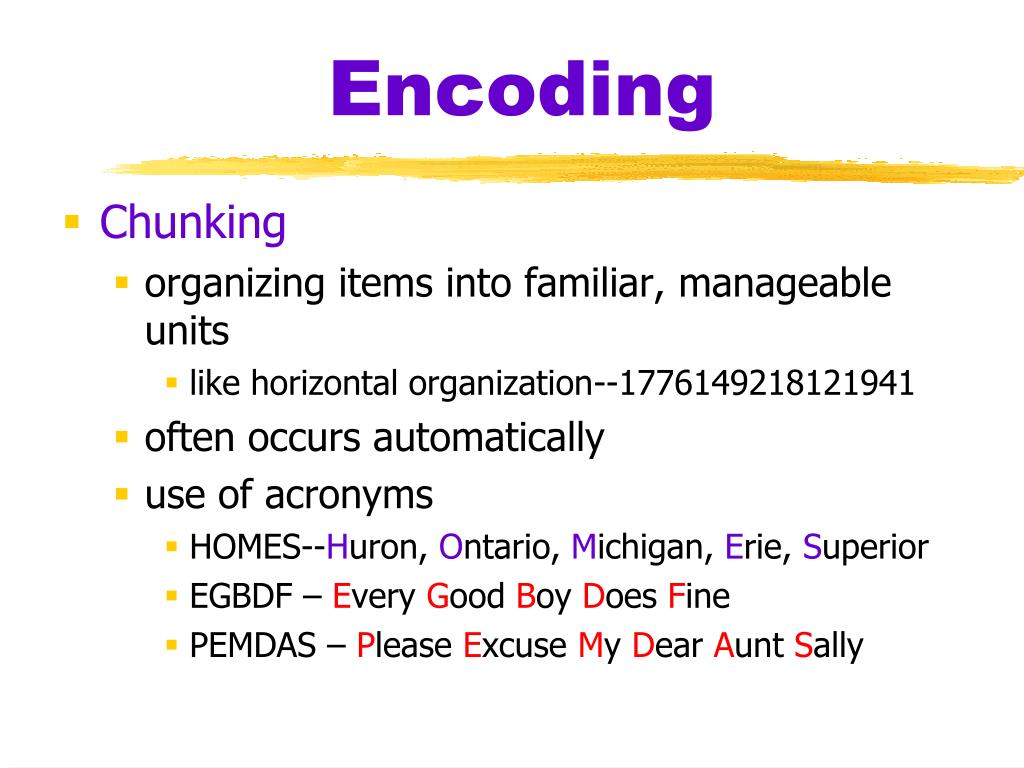


Implicit memory is assessed in a variety of ways such as word fragment completion (words seen previously are more likely to be completed than are words not seen previously) and time savings for tasks that have been done before. On implicit memory tests, respondents are unaware that memory is being accessed. Implicit memory is the unintentional recollection and/or influence of prior experience on a current task. Explicit memory is tapped by intentional recall or recognition of items or events. Long-term memory is quite vast and can retain information for extremely long periods of time (e.g., some childhood memories last until death). Short-term memory, or working memory, is of quite limited capacity and is used to hold information in consciousness for immediate use. For example, one might encode a television advertisement in terms of the visuals presented, the sounds that accompany it, or the general idea that there is a sale at the market. Semantic encoding refers to the general meaning of an event. Visual encoding and acoustic encoding are self-explanatory they are named for the sensory modality through which they operate. Memory involves three main processes: encoding (the process by which information is put into memory), storage (the process by which information is maintained in memory), and retrieval (the process by which information is recovered from memory).Įncoding may be visual, acoustic, or semantic. Vargas, Sukki Yoon, in Encyclopedia of Applied Psychology, 2004 4.1 Encoding, Storage, and Retrieval


 0 kommentar(er)
0 kommentar(er)
